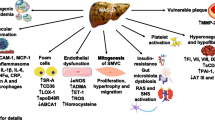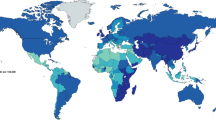Abstract
Colorectal cancer is the second most common malignancy in the Western world including the United Sates. In recent years there is a strong upward trend in colon cancer risk in Japan mainly due to Americanization of Japanese food habits. Several epidemiological studies point to a strong association between nutrient composition of the diet and cancer of the colon. The role of types of dietary fat, especially saturated fats of animal origin, n−6- and n−3-rich polyunsaturated fatty acids (PUFAs) in the etiology of colorectal cancer has become increasingly apparent. Epidemiological studies indicate a positive association between the dietary intake of saturated fat and/or animal fat and colon cancer risk and an inverse relationship between the intake of fish and fish oil rich in n−3 PUFAs and colon cancer development. Although the evidence from case-control studies and international correlational studies is not totally consistent, these inconsistencies may have arisen, at least in part, from methodological limitations. Animal, model studies have unequivocally provided evidence that the colon tumor-promoting effect of dietary fat depends on its fatty acid composition and that high dietary n−3 PUFAs lacks colon tumor-promoting effect, as compared to diets high in n−6 PUFAs or saturated fats. Diets rich in n−3 PUFAs inhibit colon carcinogenesis through the modulation of colonicras-p21, cyclooxygenase-2, and inducible nitric oxide synthase activities and apoptosis. Gene expression analysis using DNA microarrays indicates that n−3 fatty acid, docosahexaenoic acid activates cyclin-dependent kinase inhibitors such as p21, p27, p57 and p19 and inactivates antiapoptotic Bcl-2 family of genes, and prostagland in family of genes. These results suggest that decreasing the intake of n−6 PUFAs and saturated fats and increasing that of n−3 PUFAs, particularly eicosapentaenoic acid and docosahexaenoic acid has the potential to be a major component of colon cancer control.
Similar content being viewed by others
References
Greenlee RT, Murray T, Bolen S, Wingo PA. Cancer Statistics, 2000. CA Cancer J Clin. 2000;50:7–33.
Kakizoe T, Yamaguchi N, Mitsuhashi F, Koshiji M, Oshima A, Ohtaka M. Cancer statistics in Japan-2001., Foundation for Promotion of Cancer Research in Japan, 2001.
Tominaga S, Kati I. Diet, nutrition and cancer in Japan. Nutri. Health 1992;8:125–132.
Kono S, Imanishi K, Shinchi K, Yamai F. Relationship of diet to small and large adenomas of the sigmoid colon. Jpn. J. Cancer Res 1993; 83:13–19.
Wynder EL, Kajitani T, Ishikawa S, Dodo H, Takano A. Environmental factors of cancer of colon and rectum. Cancer (Phila.) 1969;23:1210–1220.
Miller AB, Howe GR, Jain M. Food items and food groups as risk factors in a case-control study of diet and colon cancer. Int. J. Cancer. 1983;32:155–162.
Giovannucci E, Willett WC. Dietary factors and risk of colon cancer. Ann. Med. 1994;26:443–452.
Word Cancer Research Fund and American Institute for Cancer research. Panel on Food. Nutrition and the Prevention of Cancer. Washington, DC: American Institute for Cancer Research. 1997.
Reddy BS. Diet and colon cancer: evidence from human and animal model studies. Boca Raton, FL: CRC Press, Inc., 1986.
Caygill CPJ, Charland SL, Lippin JA. Fat, fish, fish oil, and cancer. Br. J. Cancer. 1996;74:159–164.
Caygill CP, Hill MJ. Fish, n−3 fatty acids and human colorectal and breast cancer mortality. Eur. J. Cancer Prev. 1995;4:329–332.
Bull AW, Soullier BK, Wilson PS, Hayden MT, Nigro ND. Promotion of azoxymethane-induced intestinal cancer by high fat diets in rats. Cancer Res. 1979;39:4956–4959.
Reddy BS, Maeura Y. Tumor promotion by dietary fat in azoxymethane-induced colon carcinogenesis in female F344 rats: influence of amount and sources of dietary fat. J. Natl. Cancer Inst. 1994;72:745–745.
Reddy BS, Maruyama H. Effect of different levels of dietary corn oil and lard during the initiation phase of colon carcinogenesis in male F344 rats. J. Natl. Cancer Inst. 1986;77:815–822.
Nigro ND, Singh DV, Campbell RL, Pak MS. Effect, of dietary beef fat on the intestinal tumor formation by azoxymethane in rats. J. Natl. Cancer Inst. 1975;54:439–442.
Reddy BS. Nutritional factors and colon cancer. Critical Reviews in Food Science and Nutrition 1995;35:175–190.
Reddy BS, Narisawa T, Vukusich D, Weisburger JH, Wynder EL. Effect of quality and quality of dietary fat and dimethylhydrazine in colon carcinogenesis in rats. Proc. Soc. Exp. Biol. Med. 1976;151:237.
Chang W,-CL, Chapkin RS, Lupton JR. Fish oil blocks azoxymethane-induced rat colon tumorigenesis by increasing cell differentiation and apoptosis rather than decreasing cell proliferation. J. Nutr. 1998;128:491–497.
Hong MY, Chapkin RS, Morris JS, Wang N, Carroll RJ, Turner ND, Chang WCL, Davidson LA, Lupton JR. Anatomical sitespecific response to DNA damage is related to later tumor development in the rat azoxymethane colon carcinogenesis model. Carcinogenesis 2001: 1831–1835.
Reddy BS, Maruyama H. Effect of dietary fish oil on azoxymethane-induced colon carcinogenesis in male F 344 rats. Cancer Res. 1986;46:3367–3370.
Reddy BS, Burill C, Rigotty J. Effect of diets high in omega-3 and omega-6 fatty acids on initiation and postinitiation stages of colon carcinogenesis. Cancer Res. 1994;51:487–491.
Reddy BS, Sugie S. Effect of different levels of omega-3 and omega-6 fatty acids on azoxymethane-induced colon carcinogenesis in F344 rats. Cancer Res. 1988;48:6642–6647.
Anti M, Armelao F, Marra G. Effect of different doses of fish oil on rectal cell proliferation in patients with sporadic colonic adenomas. Gastroenterology 1994;107:1709–1718.
Yang K, Fan K, Newmark H, Leung D, Lipkin M, Steele VE, Kelloff GJ. Cytokeratin, lectin, and acidic mucin modulation in differentiating colonic epithelial cells of mice after feeding Western-style diets. Cancer Res. 1996;56:4644–4648.
Risio M, Lipkin M, Newmark H, Yang K, Rossini FP, Steele VE, Boone CW, Kelloff GJ: Apoptosis, cell proliferation, and Western-style diet-induced tumorigenesis in mouse colon. Cancer Res. 1996;56:4910–4916.
Rao CV, Hirose Y, Indranie C, Reddy BS. Modulation of experimental colon tumorigenesis by types and amounts of dietary fatty acids. Cancer Res. 2001;61:1927–1933.
Reddy BS, Wynder EL. Lange bowel cancer. Fecal constituents of populations with diverse incidence of colon cancer. J. Natl. Cancer Inst. 1973;50:1437–1442.
Reddy BS, Hedges A, Laakso K, Wynder EL. Metabolic epidemiology of large bowel cancer: Fecal bulk and constituents of high-risk North American and low-risk Finnish population. Cancer 1978;42:2832–2838.
Reddy BS, Watanabe K, Weisburger JH, Wynder EL. Promoting effect of bile acids in colon carcinogenesis in germ-free and conventional F344 rats. Cancer Res. 1977;37:3238–3242.
Craven RA, Pfanstial J, De Rubertis FR. Role of activation of protein kinase C in the stimulation of colonic epithelial proliferation and reactive oxygen formation by bile acids. J. Clin. Investig. 1987;79:532–541.
Davidson LA, Jiang YH, Derr JN, Aukema HM, Lupton JR, Chapkin RS. Protein kinase C isoforms in human and rat colonic mucosa. Arch. Biochem. Biophys. 1994;312:547–553.
Rao CV, Reddy BS. Modulating effect of amount and types of dietary fat on ornithine decarboxylase, tyrosine protein kinase, and prostaglandins production during colon carcinogenesis. Carcinogenesis 1993;14:1327–1333.
Rao CV, Simi B, Wynn T-T, Garr K, Reddy BS. Modulating effect of amount and types of dietary fat on colonic mucosal phospholipase A2, phosphatidylinositol-specific phospholipase C activities, and cyclooxygenase metabolite formation during different stages of colon tumor promotion in male F344 rats. Cancer Res. 1996;56:532–537.
Bull AW, Marnett LJ, Dawe EJ, Nigro ND. Stimulation of deoxythymidine incorporation in the colon of rats treated intrarectally with bile acids and fats. Carcinogenesis 1993;4: 207–210.
Ambs S, Merriam WG, Bennett WP, Felley-Bosco E, Ogunfusika MO, Oser SM, Klein S, Shields PG, Billiar TR, Harris CC. Frequent nitric oxide synthase-2 expression in human colon adenomas: implication for tumor angiogenesis and colon cancer progression. Cancer Res. 1998;58:334–341.
Takahashi M, Fukuda K, Ohata T, Sugimura T, Wakabayashi K. Increased expression of inducible and endothelial constitutive nitric oxide synthase in rat colon tumors induced by azoxymethane. Cancer Res. 1997;57:1233–1237.
De Rojas-walker T, Tamir S, Ji H, Wishnok JS, Tannenbaum SR. Nitric oxide induces oxidative damage in addition to deamination in macrophage DNA. Chem. Res. Toxicol 1995;8: 473–478.
Hirose Y, Rao CV, Reddy BS. Modulation of inducible nitric oxide synthase expression in rat intenstinal cells by colon tumor promoters. Int. J. Oncol. 2001;18:141–146.
Reddy BS, Sugie S. Effect of different levels of omega-3 and omega-6 fatty acids on azoxymethane-induced colon carcinogenesis in F344 rats. Cancer Res. 1988;48:6642–6847.
Eberhart CE, Coffey RJ, Radhika A, F.M. G, Ferrenbach S, DuBois RN. Up-regulation of cyclooxygenase-2 gene expression in human colorectal adenomas and adenocarcinomas. Gastroenterology 1994;107:1183–1188.
Tsujii M, DuBois RN. Alternations in cellular adhesion and apoptosis in epithelial cells overexpressing prostaglandin endoperoxide syntase 2. Cell 1995;83:493–501.
Kargman SL, O’Neill GP, Vickers PJ, Evens JF, Mancini JA, Jothy S. Expression of prostaglandin G/H-1 and-2 protein in human colon cancer. Cancer Res. 1995;55:2556–2559.
DuBois RN, Radhika A, Reddy BS, Entingh AJ. Increased cyclooxygenase-2 levels in carcinogen-induced rat colonic tumors. Gastroenterology 1996;110:1259–1262.
Oshima M, Dinchuck JE, Kargman SL, Oshima H, Hancock B, Kwong E, Trzaskos JM, Evans JF, Taketo MM. Suppression of intestinal polyposis in Ape716 knockout mice by inhibition of cyclooxygenase (COX-2). Cell 1996;87:803–809.
Kawamori T, Rao CV, Seibert K, Reddy BS. Chemopreventive activity of celecoxib, a specific cyclooxygenase-2 inhibitor, against colon carcinogenesis. Cancer Res. 1998;58:409–412.
Reddy BS, Simi B, Patel N, Aliaga C, Rao CV. Effect of amount and types of dietary fat on intestinal bacterial 7 alpha-dehydroxylase and phosphatidylinositol-specific phospholipase C and colonic mucosal diacylglycerol kinase and PKC activities during different stages of colon tumor promotion. Cancer Res. 1996; 56:2314–2320.
Egan SE, Weinberg RA. The pathway to signal achievement. Nature (Lond.) 1993;365:781–783.
Barbacid M. Ras oncogenes: their role in neoplasia. Eur. J. Clin. Invest. 1990;20:225.
Singh J, Hamid R, Reddy BS. Modulating effect of types and amount of dietary fat onras-p21, function during promotion and progression stages of colon cancer. Cancer Res. 1997;57:253–258.
Li B, Ouyang B, Pan H, Reissmann P, Li J, Weist J, Shambrook P, Gluckman JL, Noffsinger A, Bejarano P. Prk cytokine-inducible human protein serine/threonine kinase whose expression appears to be down-regulated in lung carcinogenesis. J Biol. Chem. 1996;271:19402–19408.
Dai W, Lu T, Rao CV, Reddy BS. Downregulation of PLK3 gene expression by types and amount of fat in rat colon tumors. Int. J. Oncol. 2001;20:121–126.
Narayanan BA, Narayanan NK, Reddy BS. Docosahexaenoic acid regulated genes and transcription factor inducing apoptosis in human colon cancer cells. Int. J. Oncol. 2001;19:1255–1262.
Tokudome S, Nagaya T, Okuyama H, Tokudome Y, Imaeda N, Kitagawa I, Fujiwara N, Ikeda M, Goto C, Ichikawa H, Kurik K, Takekuma K, Shimoda A, Hirose K, Usui T. Japanese versus Mediterranean diets and cancer. Pacific J. Cancer Prev. 2000;1: 61–66.
Lands WEM, Hamazaki T, Yamazaki K, Okuyama H, Sakai K, Goto Y, Hubbard VS. Changing dietary patterns. Am. J. Clin. Nutr. 1990;51:991–993.
Simopoulos AP. Omega-3 fatty acids and cardiovasculay disease: the epidemiologic evidence. Environmental Health and Preventive Medicine 2002;6:203–208.
Siscovick DS, Raghunathan TE, King I, Weinmann S, Wicklund KG, Albright J, Bovbjerg V, Arbogast P, Smith H, Kushi LH, Cobb LA, Copass MK, Psaty BM, Lematire R, Retzloff B, Childs M, Knopp RH. Dietary intake and cell membrane levels of long chain n−3 polyunsaturated fatty acids and the risk of primary cardiac arrest. JAMA 1995;274:1363–1367.
Okuyama H, Fujii Y, Ikemoto A. N−6/n−3 ratio of dietary fatty acids rather than hypercholestrolemia as the major risk factor for atherosclerosis and coronary heart disease. J. Health Sci. 2000; 46:157–177.
Author information
Authors and Affiliations
Corresponding author
Rights and permissions
About this article
Cite this article
Reddy, B.S. Types and amount of dietary fat and colon cancer risk: Prevention by omega-3 fatty acid-rich diets. Environ Health Prev Med 7, 95–102 (2002). https://doi.org/10.1265/ehpm.2002.95
Received:
Accepted:
Issue Date:
DOI: https://doi.org/10.1265/ehpm.2002.95




